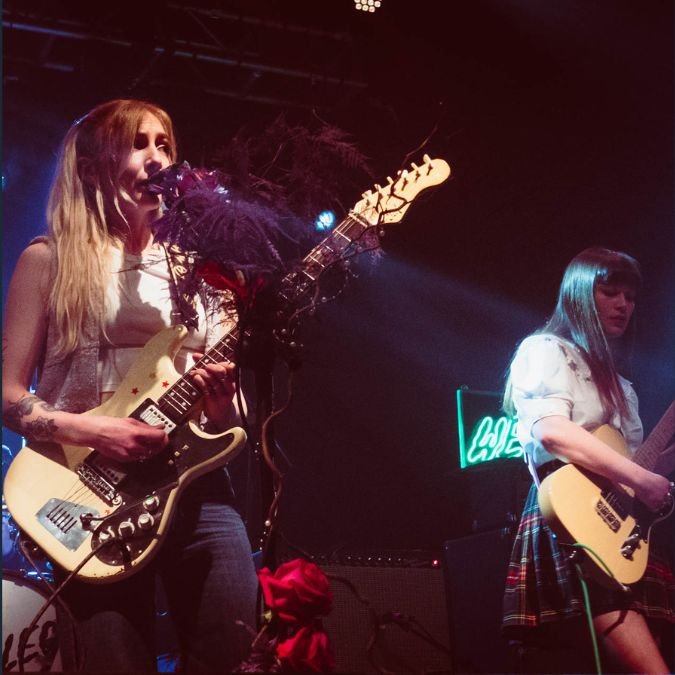Introduction:
Remember when Katt Williams took a jab at Kevin Hart, calling him an “industry plant”?
Williams claimed Hart’s rise to stardom was suspiciously quick, accusing Hollywood of propping him up before he’d even built a fan base.
While Hart brushed it off with a Netflix promo, the accusation sparked a familiar conversation in pop culture: are some artists simply planted by the industry to guarantee success?
The term industry plant has become the go-to insult for anyone who seems to blow up overnight, especially when their story feels a little too perfect.
But what does it actually mean to be an industry plant in today’s music scene, and why does it matter?
Let’s dig into the idea of the industry plant, why the term has become so popular, and whether it’s even worth getting worked up over in 2024.
What Does Being an Industry Plant Really Mean?
Let’s get down to it. What’s an industry plant?
The phrase describes an artist who’s been backed by a label or corporate machine from the beginning but pretends to have made it big on their own.
Think of it like passing off a pre-baked pie as homemade.
They might look like they came out of nowhere, but behind the scenes, there’s a whole team ensuring they bloom at just the right time.
But here’s where it gets tricky: don’t most successful artists have help at some point?
The line between the “authentic” DIY artist and someone supported by a record label has always been fuzzy.
Think back to the 1960s, when Motown’s assembly line approach made superstars out of acts like The Supremes and The Temptations.
The industry was sculpting artists even back then. The only difference today is the scale and the platforms—hello, TikTok.
The idea of the industry plant became more popular in the 2010s, particularly in hip-hop and indie music scenes, where authenticity is often prized above all else.
Hip-hop fans, for example, criticised artists like Chance the Rapper and Travis Scott, whose rapid rise felt a little too polished, suggesting they must have been “planted” by the industry.
But this isn’t new.
Even in the 90s, Britney Spears was the subject of similar whisperings, and before her, the same was said of artists like the Spice Girls, whose branding felt so meticulously crafted that their talent became secondary to their marketability.
The real question is: does it matter if a label is pulling the strings, as long as the music hits?
Famous Industry Plants: Who’s in the Greenhouse?
Who gets slapped with the industry plant label? Take Clairo, for example.
Her lo-fi hit Pretty Girl blew up in 2018, but people couldn’t resist pointing out that her dad’s a high-powered marketing exec.

Suddenly, she wasn’t just a talented musician; she was a Clairo nepo baby, accused of using family connections to get ahead.
It didn’t matter that she’d spent years honing her sound—her rapid success made people suspicious.
And it doesn’t stop with Clairo. Billie Eilish, Lil Nas X, Olivia Rodrigo, Wet Leg—nearly every viral sensation has faced the industry plant accusation at some point.

Wet Leg’s rapid rise, for instance, was so polished and viral that fans couldn’t help but wonder if their Isle of Wight roots were fertilised by something more corporate.
What’s interesting is how some artists, like Lil Nas X, have leaned into the label.
His track Industry Baby pokes fun at the very idea, embracing the joke.
And while Billie Eilish certainly had support, she was making music in her bedroom long before the world took notice.
So, are these artists really plants, or are we just uncomfortable with how fast they became successful?
Historically, the rise of these so-called industry plants mirrors the stories of stars like David Bowie, who had major label backing and a highly crafted image yet is now revered as a genius.
Spotting an Industry Plant: Not So Simple
So, how do you spot an industry plant? It’s tough. Maybe they have a highly polished debut, major label backing, or a suspiciously quick rise to fame.
But the truth is, in today’s world, almost every big artist has some kind of industry muscle behind them.
The idea of the DIY artist who grinds for years and makes it big on sheer talent alone is mostly a myth in the modern music industry.
In the TikTok era, where songs go viral overnight, the lines blur even more.
Take Addison Rae—she went from TikTok star to dropping an EP with a budget most indie artists can only dream of.
But does that make her a plant, or is she just smart enough to use her platform to pivot into music?
Is she any different from The Monkees, a group created for a TV show in the 1960s who went on to have real musical success, despite their manufactured origins?
The truth is, labels have always worked behind the scenes, from The Beatles to Beyoncé.
The Beatles may be considered paragons of authenticity, but they were still shaped and moulded by producer George Martin and manager Brian Epstein.
So why are we so obsessed with calling people out for it now?
Is it because social media has given us the illusion of transparency, where fans think they know the whole story behind an artist’s rise?
The Gender Problem in Industry Plant Accusations
There’s another layer here: sexism. Female artists, like Clairo, seem to get hit with the industry plant label far more often than men.
When Billie Eilish’s debut exploded, people immediately questioned how a young artist could be so polished without some label wizardry behind her.
Yet, similar accusations don’t often stick to male artists. Somehow, we’re more willing to believe that men succeed on their own.
If you look closely, the industry plant label often feels like an excuse to tear down women’s success.
This isn’t new. In the 1990s, Alanis Morissette faced the same scrutiny, and the early 2000s saw Avril Lavigne labelled a product of her record label.
It’s a way of dismissing their hard work, hiding behind the idea that they must’ve had help.
Meanwhile, male artists like Justin Bieber, who had a similar rapid rise, escape the same level of criticism. The message? Women need help; men just work hard.
TikTok: Fuel for the Industry Plant Debate

TikTok has only thrown more fuel on the fire. The app’s algorithm favours quick, viral moments, making it easier for labels to catapult an artist to fame in a matter of days.
Remember Lil Nas X? His Old Town Road skyrocketed on TikTok, making him an instant star.
Addison Rae, meanwhile, had a huge TikTok following before she ever released music.
The speed at which artists rise now makes the idea of authenticity feel outdated.
In the past, even pop stars had to put in time performing on small stages or getting radio play before they made it big.
Today, you can blow up online with one well-timed TikTok. But here’s the twist: do we really care if someone blows up on TikTok, as long as the music’s good?
We’ve entered an age where virality is often seen as a badge of honour, not something to be suspicious of.
The Real Issue: It’s the Industry, Not the Plant

At the end of the day, industry plants aren’t the real problem—it’s the industry itself.
The entire music business has always been about elevating some while leaving others in the shadows.
Labels throw huge resources behind a few chosen artists, hoping to create the next superstar.
But here’s the thing: even the most well-backed artists have to put in the work.
Sure, some might have the “right” connections, but does that make them less deserving of success?
Historically, artists like Madonna, who had a carefully orchestrated rise, still had to work harder than most to stay on top.
Maybe we’re more bothered by how easy their rise looks from the outside.
In truth, the industry plant label is just another way of revealing our discomfort with how the music business has always worked.
Why We Should Move On from the Industry Plant Debate

So whether if an artist is an industry plant or not shouldn’t matter as much as it does.
The music business has always been a mix of talent, timing, and connections. That hasn’t changed.
The artists who make it, label-backed or not, still need to work hard to stay there.
So the next time someone throws the term industry plant around, stop and think.
Are they mad that the artist got help, or are they just uncomfortable with how success looks in the digital age?
After all, a hit is still a hit, no matter how it’s grown.
You might also like:
- The 2024 Music Industry Trends Guide: What’s Really Changing and Why You Should Care
- 40 Best Halloween Songs for the Ultimate Spooky Playlist
- Finding Your Perfect Music Match: The Real Best Music Streaming Service for You
- The 10 Most Misinterpreted Song Lyrics of All Time
- Unleashing Your Inner Lyricist: The Best Songwriting and Lyrical Analysis Books You Haven’t Considered (Yet)


